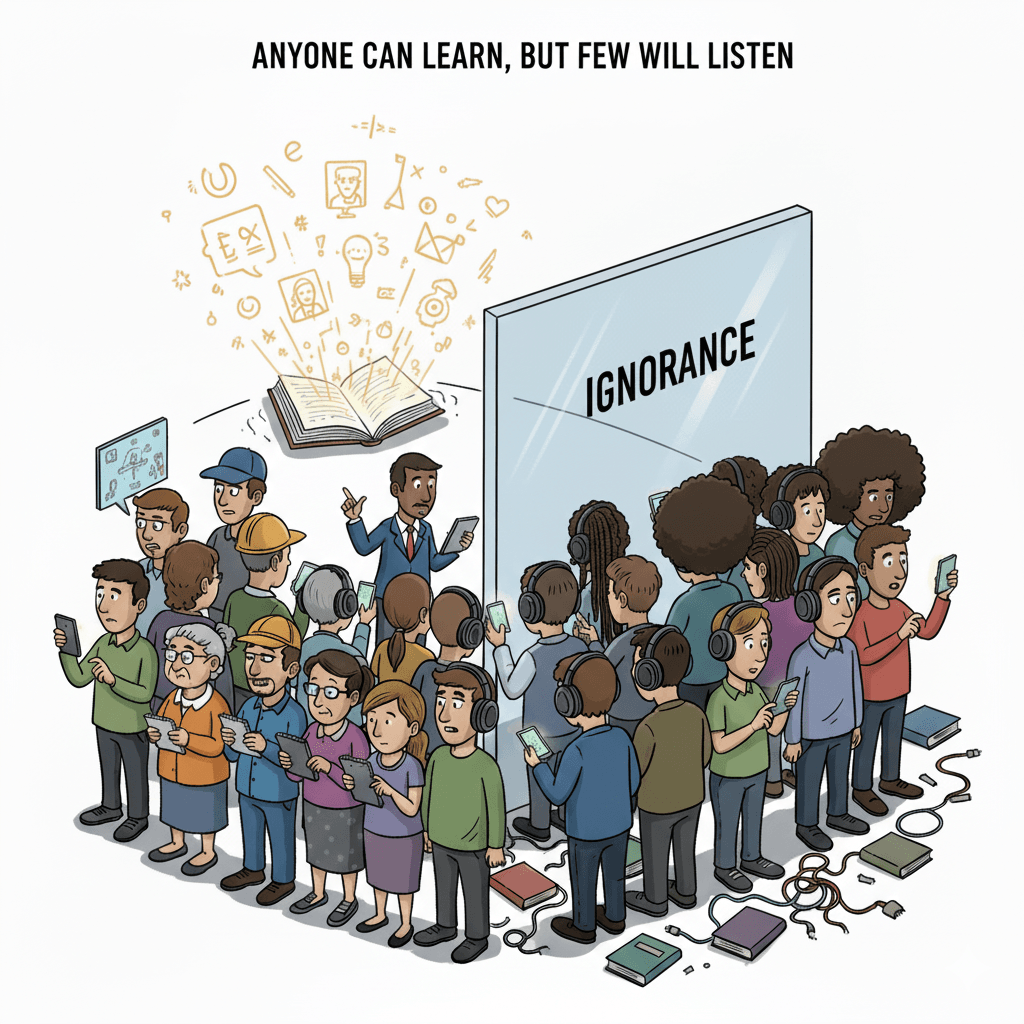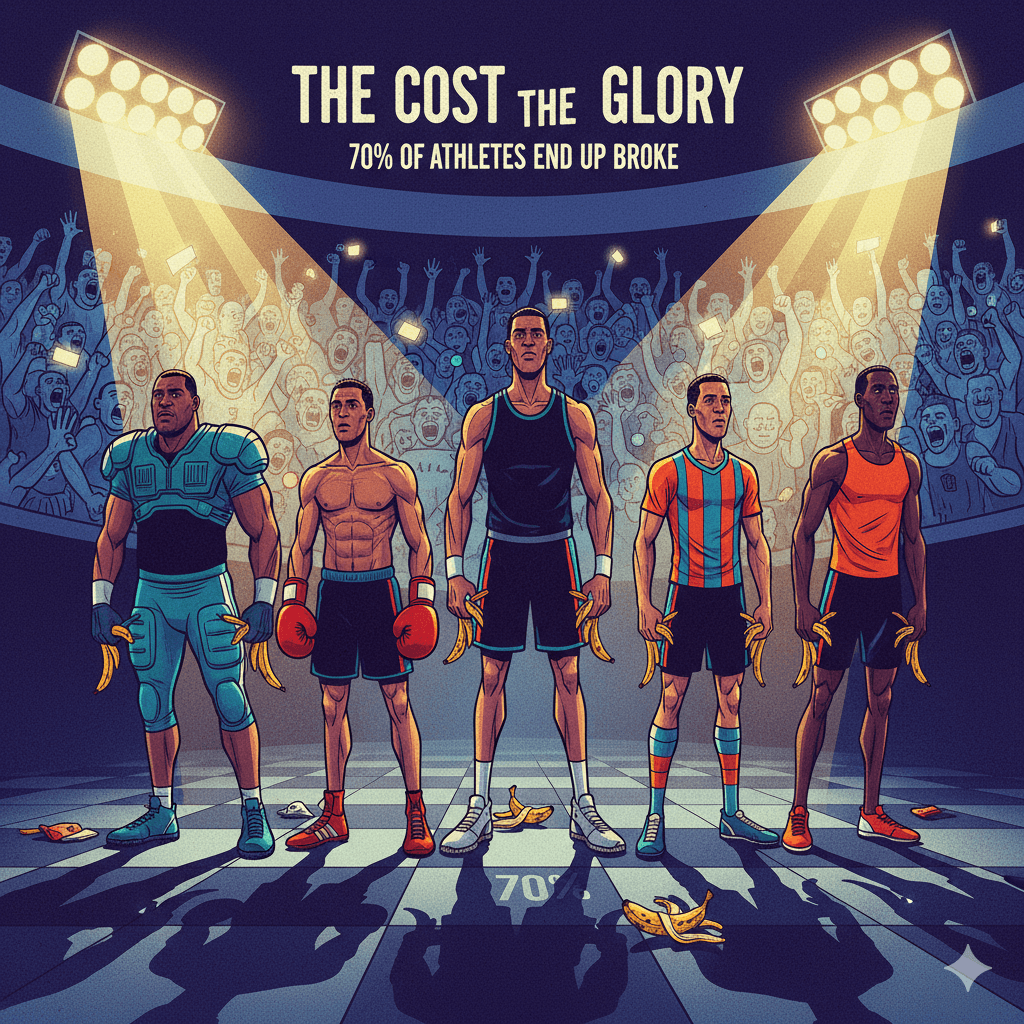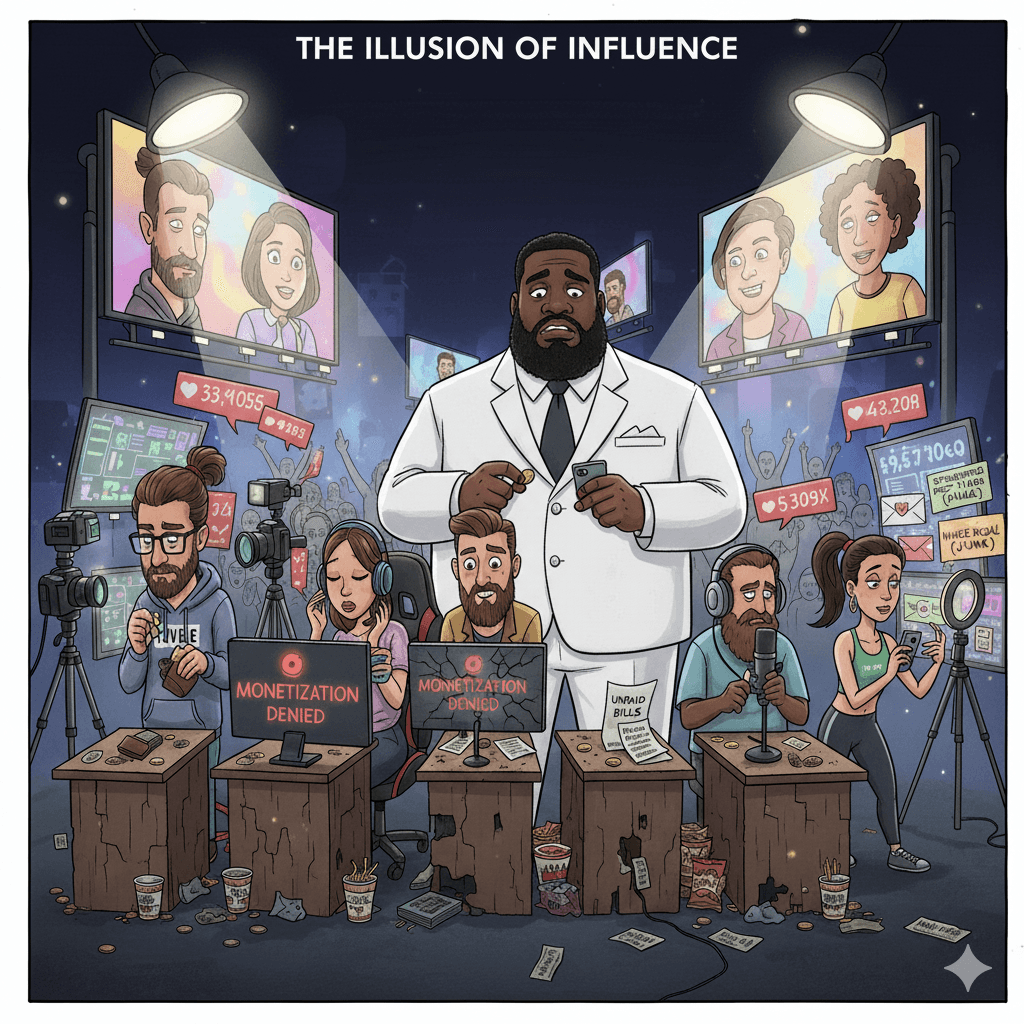The Myth of the Ineducable in the Age of Information
We live in an age where anyone can learn almost anything in seconds. Medical research, financial strategies, retirement calculators, and mental health resources are all within reach. Yet despite this unprecedented access to knowledge, many people remain what older generations once called ineducable. Not because they lack the capacity to learn, but because they refuse to apply what is already known.

The Evolution of a Label
The word "ineducable" once carried devastating weight. Throughout much of the twentieth century, educators used it as a verdict on children and adults who struggled with learning, often those with intellectual disabilities or cognitive impairments. It was a door slammed shut and a future foreclosed.
Today, we understand that virtually no one is truly ineducable. Modern terms like intellectual disability, special educational needs, learning differences, and severe cognitive impairment reflect more dignity and accuracy. They acknowledge a fundamental truth: people learn in profoundly different ways.
The real tragedy is not that people cannot learn. It is that so many choose not to.
When Information Doesn’t Transform
The data is public. The strategies are proven. Yet failure repeats itself.

Over 70 percent of professional athletes in the United States declare bankruptcy within a few years of retirement. These are not individuals lacking resources. They have access to financial advisors, multi-million-dollar contracts, and educational opportunities most people never see. The formulas for financial stability are not hidden from them. They are not followed.
This same pattern exists everywhere. We know what foods promote health, which behaviors strengthen relationships, and which financial habits build wealth. Still, so few follow through. The barrier is not access to information. It is psychological resistance.
The Dunning–Kruger Trap
Psychology provides part of the answer through the Dunning–Kruger effect, a bias in which individuals with limited knowledge in a field overestimate their competence. Someone watches a fifteen-minute video on investing and believes they have outsmarted professional advisors. Another reads an article on nutrition and dismisses decades of medical research.
This is not absolute confidence. It is an illusion. It is a blind spot that keeps people from genuine growth.

The Hidden Root: Insecurity Masquerading as Certainty
At first glance, the Dunning–Kruger effect appears to be arrogance. Beneath it, however, lies insecurity.
Overconfidence becomes a psychological shield. Admitting gaps in understanding can feel like a weakness and threaten the identity people have built. From a mental health perspective, false certainty operates as a defense mechanism. It protects the ego while preventing learning. If you cannot admit what you do not know, you cannot seek the wisdom that could save you from failure.
The Architecture of Resistance
Why do intelligent people reject proven formulas? The reasons are layered.
Fear of change. The familiar feels safer than the unknown, even when the familiar is failing us.
Distrust of authority. In an era of misinformation, many assume that experts are manipulating facts for personal gain.
Overconfidence bias. The belief that surface-level knowledge equals mastery prevents deeper study.
Emotional avoidance. Financial discipline, healthy habits, and self-reflection all require a certain level of discomfort. Many people would rather protect their emotions than their future.
When fear, distrust, and pride converge, information becomes distorted and unreliable. People accept learning because they cannot understand. They reject it because understanding demands transformation.
The Path Forward: Intellectual Humility
The antidote to the Dunning–Kruger effect is intellectual humility, the ability to recognize and admit what we do not know. This is not a weakness. It is the foundation of authentic learning.
Transformation requires several shifts.
Reframe education as lifelong. Learning does not end with a diploma. The most successful people treat growth as a continuous process.
Embrace discomfort. Growth happens at the edge of what we understand, not in the comfort of what we already know.
Seek mentorship. Find guides who have walked the path you aspire to and learn from their process, not just their success stories.
Verify your certainty. When you feel sure about something outside your expertise, that is precisely the moment to seek a second opinion.
Technology amplifies both potential and pitfalls. It can mislead those who stop at headlines and echo chambers, yet it can empower those who use it for depth, comparison, and understanding.

Breaking the Cycle
The label 'ineducable' may be obsolete, but the mindset remains alive. Whether it is athletes squandering fortunes or ordinary people ignoring proven health advice, the pattern is the same. Knowledge exists. Wisdom is rejected. Consequences follow.
We are not ineducable. But without humility, courage, and discipline, we live as if we were. The information age has handed us the tools of transformation. Whether we use them or ignore them will determine not only our personal futures but the trajectory of human progress itself.